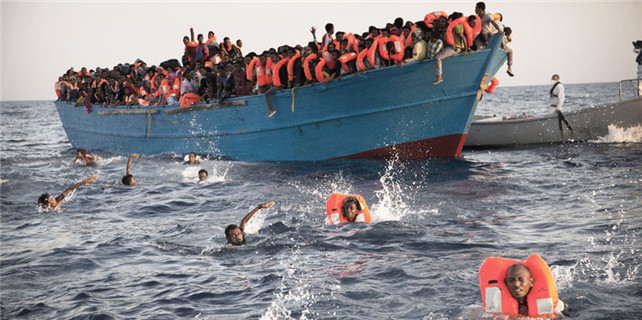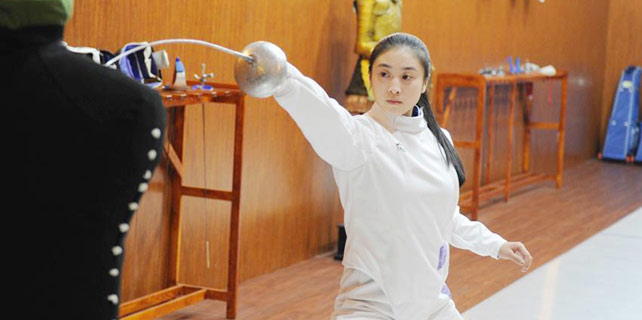EU starts timely program to help its young people
Updated: 2016-12-13 07:34
By Fu Jing(China Daily)
|
||||||||
European Commission President Jean-Claude Juncker knows only too well that obstacles to European integration have to be removed to reassure the youth, who are finding it increasingly difficult to cope with the economic downturn, of the advantages of the European project.
The European Commission has taken a timely initiative, the European Solidarity Corps, to offer 100,000 youths from European Union member states the opportunity to be placed by 2020 with a project either for volunteering or for a traineeship, an apprenticeship or a job for a period of two to 12 months.
On Wednesday, youths between 17 and 30 years of age can start registering for the project. Against the backdrop of multiple crises and increasing social disruptions in the EU and beyond, Juncker has set an example of visionary leadership by rolling out an initiative aimed at helping young people and strengthening EU solidarity.
In Greece, Spain and Italy, roughly half of the young people cannot find work. In the rest of the EU, one in four youths faces the same problem. The EU also faces the challenge of creating jobs for the rising number of refugees from the Middle East.
Inclusiveness and sharing, values integral to the EU, face the challenge of rising protectionism, populism and terrorism. That's why Juncker's European Solidarity Corps initiative is important-it is aimed at addressing the twin problems of EU youths and solidarity. In someway, this scheme is equally essential as the EU's three-year investment plan, which he is going to extend in size and scale.
But Juncker should understand that solidarity and youth employment are not only European but also global problems. He should therefore try to expand the initiative.
Preparing to take over the G20 chair in 2017, Germany is busy designing the agenda for the group's summit in Hamburg in July where leaders are expected to discuss ways to solve the pressing global problems.
The G20 is evolving from a platform to help stabilize the global financial system and bolster economic growth to a mechanism to meet the challenges facing the world. It's time the G20 added to its agenda global solidarity and youth employment, too. And perhaps it's time the G20 economies invested more resources and came up with more innovative programs to help strengthen global solidarity and better understand South-North relations.
It is relatively easy to plug the financial loopholes, however, than to remove the mental obstacles to regional and global unity. So G20 leaders should use their vision and leadership to instill unity among youths not only in the EUbut also in the rest of the world.
Juncker's solidarity plan also offers another opportunity to seek synergy with China's Belt and Road Initiative (the Silk Road Economic Belt and 21st Century Maritime Silk Road). China's initiative is a shared project for all the countries along the routes, and it goes beyond infrastructure construction, trade and investment.
The EU aims to attract 100,000 young people into the solidarity project by 2020. Since more than 200,000 Chinese students are studying in Europe at present, it would be a welcome move to include them in the project, because the long-term returns for that will be enormous.
In return, Beijing should also offer such an opportunity to European students studying in China. But while designing such China-EU projects, both sides should discuss the chances of their success with other countries that are part of the Belt and Road Initiative, in order to reach a broader consensus on cooperation.
Juncker has said solidarity is an EU value. But it is also a value shared by the "global village", which faces unprecedented challenges.
China and the EU have agreed to cooperate on some mega projects, such as the€315 billion ($350 billion) investment plan and the Belt and Road Initiative. Now, they need to explore another front to connect the minds of the younger generation by learning from Juncker's European Solidarity Corps.
The author is deputy chief of China Daily European Bureau.
fujing@chinadaily.com.cn
- Merkel reelected as chairman of CDU party
- Lebanese women protest over unreasonable rape law
- World's longest railway tunnel gets go-ahead for commercial use
- Leaders express condolences over Fidel Castro
- Trump to nominate retired General Mattis for Pentagon
- Fidel Castro's ashes begin three-day procession

 The world in photos: Dec 5 - 11
The world in photos: Dec 5 - 11
 Shanghai Disneyland celebrates its first Christmas season
Shanghai Disneyland celebrates its first Christmas season
 Hair, eyelashes turn white as temperature falls to minus 30
Hair, eyelashes turn white as temperature falls to minus 30
 Associated Press's best news photos of 2016
Associated Press's best news photos of 2016
 Ten photos from around China: Dec 2-8
Ten photos from around China: Dec 2-8
 Lead economists' take on the economy of China and the world
Lead economists' take on the economy of China and the world
 Spectacular starry night in Shigatse, Tibet
Spectacular starry night in Shigatse, Tibet
 Blazing a new path in fencing
Blazing a new path in fencing
Most Viewed
Editor's Picks

|

|

|

|

|

|
Today's Top News
Meet Ya Lun and Xi Lun, twin panda cubs
New York (Goings On)
Book tells Chao patriarch's story
Nanjing memorial unites communities
Oceanwide breaks ground on skyscraper
Will Trump walk the walk and really drain the DC swamp?
First-grader's composition circulates online and moves courier parents
Weibo post makes blind WWII veteran dream come true
US Weekly

|

|







